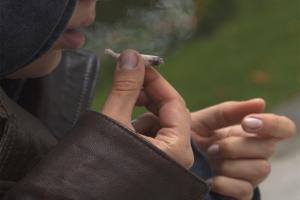The study, published in the journal Drug and Alcohol Dependence, suggested that they are also at higher risk of polysubstance use than their heterosexual peers

Representational Image
Young people who identify themselves as lesbian, gay or bisexual are at an increased risk of using substances such as alcohol, nicotine and marijuana, a new study has found.
ADVERTISEMENT
The study, published in the journal Drug and Alcohol Dependence, suggested that they are also at higher risk of polysubstance use than their heterosexual peers.
"This data shows definitively that polysubstance use is an issue among many youth who identify as sexual minorities, meaning they are facing added health risks," said Sarah Dermody, Assistant Professor at the Oregon State University in the US.
"But there are also differences among the subgroups of youth who identify as sexual minorities, suggesting we need to look beyond the averages to understand what factors may be influencing substance use in this population," Dermody added.
Sexual minority is an umbrella term for those who identify with any sexual identity other than heterosexual or who report same-sex attraction or behaviour.
For the study, the team involved more than 15,000 lesbian, gay or bisexual youth. The goal of the study was to better understand the risks associated with polysubstance use, or the use of three or more types of drugs, among sexual minority youth.
The data showed that there is a sizeable number of youth, both heterosexual and sexual minority, who don't use any substances at all, Dermody said.
But among those who do, she found that those identified as sexual minority youth were at higher risk of using each type of drug -- alcohol, marijuana and cigarettes -- compared to heterosexual youth.
And within the sexual minority youth population, some groups were at more risk than others for using one, two or all three substances, the researchers found.
Bisexual youth faced the largest increase in the risk of polysubstance abuse as well as combinations of two substances, while those who identified as lesbian or gay were only at higher risk for some combinations, the team said.
The disparity may be due in part to stress from discrimination, violence and victimisation rooted in their sexual minority status, Dermody noted.
Catch up on all the latest Crime, National, International and Hatke news here. Also, download the new mid-day Android and iOS apps to get latest updates
 Subscribe today by clicking the link and stay updated with the latest news!" Click here!
Subscribe today by clicking the link and stay updated with the latest news!" Click here!






